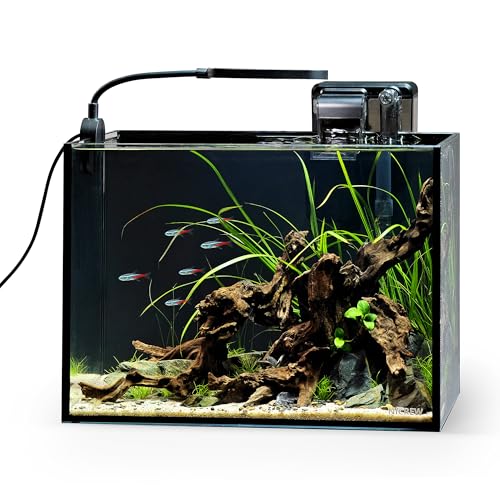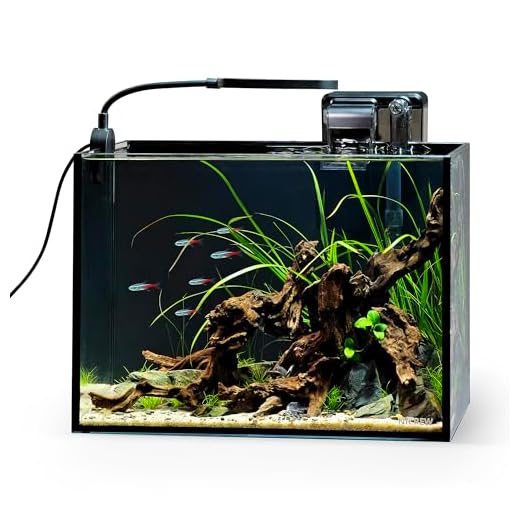Reef
Blog
How long do betta fish live in a tank

Betta fish, also known as Siamese fighting fish, are popular pets known for their vibrant colors and flowing fins. If you’re considering adding a betta fish to your aquarium, it’s important to understand their lifespan in a tank.
On average, betta fish can live for around 2 to 3 years in a tank. However, with proper care and a healthy environment, they have the potential to live even longer. Some betta fish enthusiasts have reported their fish living up to 5 years or more.
Creating an optimal environment for your betta fish is crucial in ensuring their longevity. Betta fish are tropical fish, so maintaining a stable water temperature between 76°F and 82°F (24°C and 28°C) is essential. Additionally, providing proper filtration, regular water changes, and a balanced diet will greatly contribute to their overall well-being.
It’s important to note that betta fish are solitary creatures and prefer to live alone. Keeping multiple betta fish together can result in aggression and stress, leading to a shortened lifespan. It’s best to provide your betta fish with a spacious tank with plenty of hiding spots and plants to mimic their natural habitat.
Overall, by providing your betta fish with a healthy and stress-free environment, you can maximize their lifespan in a tank. With proper care, you can enjoy the beauty and companionship of your betta fish for several years.
What are betta fish
Betta fish, also known as Siamese fighting fish, are small, colorful freshwater fish native to Thailand and Cambodia. They are highly sought after for their vibrant colors and elaborate fins, making them popular pets and decorative additions to fish tanks.
Male betta fish are particularly known for their aggression towards other males, which is why they are often kept alone in small tanks or containers. They have been selectively bred for their aggressive nature and stunning appearance.
Betta fish are labyrinth fish, meaning they have a special organ called a labyrinth organ that allows them to breathe oxygen directly from the air. This adaptation enables betta fish to survive in oxygen-depleted water, such as small puddles or stagnant ponds.
| Physical Characteristics | Behavior |
|---|---|
| Betta fish have long, flowing fins and bright, jewel-like colors. | Male bettas are territorial and will flare their fins and gills to intimidate rivals. |
| They have a small mouth with sharp teeth for capturing prey. | Females are generally less aggressive and can be housed together in bigger tanks. |
| Betta fish have a labyrinth organ that allows them to breathe air at the water’s surface. | Bettas are curious and can recognize their owners, often following their finger. |
Overall, betta fish are fascinating creatures known for their unique beauty and interesting behaviors. With proper care and the right environment, they can live for several years in a tank.
Importance of a suitable tank for betta fish
Betta fish, also known as Siamese fighting fish, are beautiful and unique pets that require specific care to thrive in captivity. One of the most crucial factors influencing the well-being and lifespan of a betta fish is the tank they live in. Providing a suitable tank environment is essential for their overall health and vitality.
Size of the tank
The size of the tank plays a significant role in the well-being of betta fish. While bettas are often sold in small cups, they require a more spacious tank to live a healthy life. A tank of at least 5 gallons or more is recommended to provide ample swimming space and maintain proper water parameters. A larger tank also allows for better filtration and dilution of toxins, reducing the stress on the fish.
Water quality
Betta fish are particularly sensitive to water conditions, so maintaining good water quality is vital for their health. A suitable tank should have a filtration system that effectively removes harmful substances, such as ammonia and nitrates, and maintains a stable water temperature between 75-80°F (24-27°C). Regular water testing and partial water changes are essential to prevent the buildup of toxins and maintain optimal water parameters.
Tip: Using a water conditioner to remove chlorine and other chemicals from tap water is crucial before adding it to the tank.
Decoration and hiding spots
Betta fish appreciate a well-decorated tank with plenty of hiding spots. Live or silk plants, rocks, and caves provide places for bettas to explore and retreat when they need privacy. These decorations not only create a more aesthetically pleasing environment but also help reduce stress for the fish.
Caution: Avoid using decorations with sharp edges or rough surfaces that can tear the delicate fins of betta fish.
In conclusion, providing a suitable tank for betta fish is of utmost importance to ensure their well-being and longevity. A properly sized tank, clean water, and proper decoration will contribute to a healthy and thriving betta fish in captivity.
Betta fish lifespan
Betta fish, also known as Siamese fighting fish, are popular aquarium pets known for their vibrant colors and long flowing fins. Betta fish have a relatively short lifespan compared to other fish species, typically living for about 2 to 5 years in a tank.
Their lifespan can vary depending on various factors, including genetics, water quality, diet, and overall care. With proper care and optimal conditions, some betta fish have been known to live up to 8 years in captivity.
It is important to note that a betta fish’s lifespan can be affected by stress, illness, and poor living conditions. Therefore, it is crucial to provide a suitable environment for them to thrive.
Some tips to help extend the lifespan of your betta fish include:
| 1. Tank size: | Provide a spacious tank with a minimum size of 2.5 gallons. Larger tanks offer more swimming space and help maintain water parameters. |
| 2. Water quality: | Maintain proper water parameters, including temperature (around 78-80°F), pH levels (around 6.5-7.5), and regular water changes. |
| 3. Diet: | Feed your betta fish a balanced diet of high-quality betta pellets, supplemented with occasional live or frozen foods like brine shrimp or bloodworms. |
| 4. Tank mates: | Avoid keeping betta fish with aggressive tank mates, as they can cause stress and injuries. |
| 5. Enrichment: | Add tank decorations, plants, and hiding spots to create a stimulating and comfortable environment for your betta fish. |
| 6. Regular monitoring: | Observe your betta fish regularly for any signs of illness or stress, and take prompt action if needed. |
By providing proper care and attention, you can help ensure that your betta fish lives a healthy and fulfilling life in your tank.
Factors affecting betta fish lifespan
Several factors can influence the lifespan of betta fish when kept in a tank. These factors include:
| Factor | Description |
|---|---|
| Water quality | Good water quality is crucial for the health and longevity of betta fish. Maintaining proper pH levels, temperature, and regular water changes are essential. |
| Tank size | Betta fish need enough space to swim and explore. Lack of space can lead to stress and health issues, potentially shortening their lifespan. |
| Diet | A well-balanced diet is important to keep betta fish healthy. Feeding them a varied diet of high-quality pellets, frozen or live food can help extend their lifespan. |
| Companions | Choosing suitable tankmates for betta fish is important. Aggressive tankmates can cause stress and physical harm, leading to a shortened lifespan. |
| Genetics | Some betta fish may have genetic predispositions to certain health conditions, which can affect their lifespan. Breeding from healthy individuals can help improve overall genetic health. |
| Stress | Betta fish are sensitive to stress. Factors such as loud noises, excessive handling, or poor tank conditions can lead to stress-related illnesses and a shorter lifespan. |
By providing optimal care, a clean and suitable environment, and addressing these factors, betta fish can live a healthy and fulfilling life in a tank.
Tips for extending betta fish lifespan
While betta fish can live for several years in a tank, there are several steps you can take to help extend their lifespan:
- Provide a suitable tank: A betta fish should be kept in a tank that is at least 5 gallons in size. This will give them plenty of room to swim and explore, which can help reduce stress and improve their overall health.
- Maintain proper water conditions: Betta fish require clean and well-maintained water to thrive. Regularly test the water parameters and perform necessary water changes to ensure that ammonia and nitrate levels are kept low.
- Use a heater and thermometer: Betta fish are tropical fish and prefer water temperatures between 75-80 degrees Fahrenheit. Use a reliable heater and thermometer to make sure the water is maintained at the correct temperature.
- Feed a balanced diet: Provide your betta fish with a high-quality diet that includes a variety of foods. Betta pellets or flakes should be the main staple, supplemented with occasional treats such as bloodworms or brine shrimp.
- Avoid overfeeding: Only feed your betta fish what they can consume within a few minutes. Overfeeding can lead to bloating and other health issues.
- Keep tank decorations fish-friendly: When decorating the tank, avoid sharp edges or anything that could tear the betta fish’s delicate fins. Provide plenty of hiding spots and plants to create a comfortable and stimulating environment.
- Minimize stress: Betta fish are sensitive to sudden changes in their environment. Minimize stress by avoiding loud noises, keeping the tank away from high traffic areas, and maintaining a consistent light-dark cycle.
- Monitor for signs of illness: Regularly observe your betta fish for any signs of illness or unusual behavior. Treat any potential health issues promptly to prevent them from becoming more serious.
By following these tips, you can provide a healthy and enriching environment for your betta fish, helping to extend their lifespan and ensure their well-being.
Question & Answer
How long can a betta fish live in a tank?
A betta fish can live in a tank for an average of 2 to 4 years.
What factors can affect the lifespan of a betta fish in a tank?
Several factors can affect the lifespan of a betta fish in a tank, including water quality, temperature, diet, tank size, and stress levels.
Can a betta fish live longer in a larger tank?
Yes, a betta fish can live longer in a larger tank. A larger tank provides more swimming space and allows for better water quality and filtration.
How often should I clean the tank to ensure my betta fish lives a long life?
You should clean the tank regularly to maintain good water quality. It is recommended to do partial water changes of 25-50% every week and a full tank cleaning every month.
Can a betta fish live longer with a varied diet?
Yes, providing a varied diet can help extend the lifespan of a betta fish. A balanced diet that includes high-quality betta pellets, frozen or live foods like brine shrimp or daphnia, and occasional treats like bloodworms can enhance their overall health and longevity.
How long do betta fish typically live in a tank?
Betta fish typically live for around two to three years in a tank. However, with proper care and a healthy environment, they can live up to five years or even longer.
What factors can affect the lifespan of betta fish in a tank?
Several factors can affect the lifespan of betta fish in a tank. These include water quality, temperature, diet, tank size, and genetics. It’s important to provide a clean tank with the right water conditions, feed them a balanced diet, and ensure they have enough space to swim and explore.





